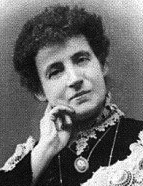

Carolina’s contributions to encyclopaedic works, which addressed Portuguese and Iberian topics, show how her scholarship was recognised beyond the Pyrenean border. After a wait of nearly a decade, her short notes on Portuguese Language and Literature came out in the sixth edition of Meyers Grosses Konversations-Lexikon (vol. XVI, 1907). In addition to inviting her to take part in international feminist congresses, Helena Lange and Gertrudes Baümer asked Carolina to contribute to the first volume of Handbuch der Frauenbewegung (Berlin, 1901-1906). In September 1902, Duarte Leite adapted the Portuguese content of this feminist movement manual for publication in the Porto daily O Primeiro de Janeiro (republished 2002). Carolina took part in various collective works, but always as a contributor and never as editor. Her connections with a vast network of specialists, the two-way correspondence in which she was addressed as “douta senhora” (learned lady) and the visitors to her home and its library could serve as a study on European human sciences in their own right and would deserve to be the object of reflection on how to construct scientific knowledge in a community. The Portuguese historians in the latter included Joaquim de Vasconcelos himself, Alexandre Herculano, Oliveira Martins and Teófilo Braga. The people with whom Carolina pursued a polyglot correspondence would take a whole page to list (inter alia, Carolina Michaëlis: Lista…, 1912, pp. 29-49; personal papers of Oliveira Martins at the National Library of Portugal; collections of the General Library of the University of Coimbra). There was a constant exchange of material, news about documentation and critical texts between Carolina the scholar and other researchers, and references to a search for documentation are a recurrent topic. It was quite possible that the response to a query addressed to her would take the form of an in-depth study – the case, for example, of a question from Gomez Ocerin about a musical Intermezzo, which gave rise to A Saudade Portuguesa (1914). A habitual subject of both the letters sent to her and those she penned was that of delving into local archives (like the research she conducted in Holland, for Uriel da Costa, 1922).
Over the course of her life she built up a history of literature that covered every period from the Medieval to contemporary authors. Biographers note a certain slowdown in Carolina’s publications that coincided with the birth of the couple’s first and only child, in 1877, but from May to September of the same year the young philologist made her first foray into a manuscript deposited at the Ajuda Library. She took full advantage of the invitation offered by the librarian, Alexandre Herculano, who was withdrawing to spend what would be the last months of his life at Vale de Lobos and who left his residence next to the Library empty.
